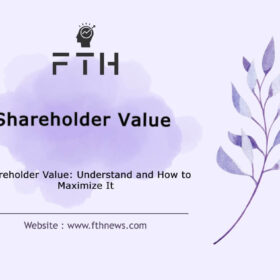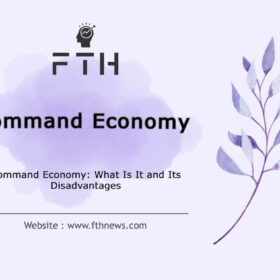
Unfair Advantage: What School Doesn’t Teach You About Money
Unfair Advantage When it comes to those eager to delve into the world of investing, Robert Kiyosaki books are often their first port of call. With books like “Rich Dad, Poor Dad,” Kiyosaki has fundamentally transformed how people worldwide perceive critical financial concepts such as “money,” “property,” “capital,” “wealth,” and “financial education.”
we will explore Kiyosaki insights as he condenses his wisdom in “The Game of Wealth.” If you’re on a quest to enrich your understanding of money and wealth, stay with us until the culmination of this narrative.
Saying Farewell to the Industrial Age
The industrial age has drawn its last breath; it’s time to bid adieu to its bygone era. Many of the ideals that were once cherished no longer hold the same value. Traditionally esteemed achievements, such as acquiring a high-level education, securing a well-paying job, and awaiting a pension, belong to an industrial age that has faded into history. Nevertheless, the allure of these ideals still lingers in our collective psyche, making it challenging for us to acknowledge their obsolescence.
Even seemingly affluent nations are grappling with a peculiar form of debt. The United States, considered a powerful and wealthy nation, is edging closer to the unenviable distinction of being the world’s most indebted country.
As a consequence of these fiscal strains, governments can no longer extend pensions to the dedicated workers and employees who have devoted their lives to building and expanding industries and companies. Nor can they adequately support these individuals in times of illness, as was once commonplace during the industrial age. The reality is that we embarked on the age of information and the internet many years ago. Now, data, financial education, and the art of accumulating wealth take center stage.
Unfair Advantage: We Owe More Than You Think
It’s a common assumption that the most indebted countries or individuals are the poorest. However, the reality is quite different. The U.S. dollar ceased to be an asset from the day former U.S. President Richard Nixon severed its ties with gold. Thus, whether we like it or not, anyone engaging with the dollar is essentially dealing with debt.
Amid this intricate financial landscape, there are those who have mastered the art of becoming wealthy through leveraging debt, while others remain ignorant of these strategies, leading to their gradual impoverishment. In an era where money is essentially debt, and data is king in the digital age, financial education is our most potent weapon for financial salvation.
Financial Education and Financial Training: A Vital Distinction
It’s crucial to understand that financial education and financial training are not one and the same. A significant portion of the world’s economic predicaments can be attributed to those whose minds have undergone financial education. These individuals, well-versed in conventional financial wisdom, often pass on their knowledge in the form of lessons and financial education.
While financial education provides valuable insights into concepts like the benefits of investment in the face of inflation, it often neglects the practical aspects of investing and safeguarding one’s savings. The difference between “financial education” and “financial training” is akin to owning a laptop and being able to repair it.
Financially educated individuals can efficiently use their laptops, navigate various programs, and spend hours surfing the web. However, when a part of their laptop malfunctions, their operating system crashes, or they spill water on their system, they are at a loss because they lack the training to fix it.
Financial training equips you to navigate the most critical financial situations, enabling you to recognize the most opportune times to take specific financial actions.
Prioritize Cash Flow Over Return on Investment: Unfair Advantage
While many individuals believe they are investing their savings and participating in the wealth-building game, their common choices often include the capital market, gold, real estate, and similar assets. I, too, consider these investment avenues, but my perspective on these options differs from that of most investors.
For the majority, the objective when investing is to find a way to generate a steady stream of profits through the growth of their assets. However, my approach is distinct: I aim to create cash flow in my life.
This subtle difference in approach can be the defining factor that separates success from failure, particularly in the realm of real estate investing. It’s this unique mindset that has enabled me to achieve the success I desired in the world of real estate.
Taxation: A Burden or a Boon?
How do you feel about taxes? Many individuals harbor resentment when it comes to paying taxes, and you might be inclined to agree. It often appears that taxes disproportionately affect the less fortunate, while the wealthy seem to evade them effortlessly. Your perception is not unfounded.
Governments often tax those diligently striving to amass wealth through hard work, while many affluent members of society, deeply entrenched in the game of wealth, seem to elude their fair share. Those who amass wealth effortlessly, enjoying a continuous influx of money, either pay little in taxes or find ways to avoid them entirely. Does this strike you as unjust?
To rectify this imbalance, consider investing time in financial education, a path towards justice that spares you from handing over your hard-earned wealth to the government.
Are You Truly a Capitalist?
There exist numerous, albeit concealed, distinctions between those who genuinely embody capitalism and those who merely perceive themselves as capitalists. Let’s delve into these distinctions one by one:
Real Capitalists Think Big: They harbor grand ambitions and vision.
They Seek Income Streams, Not Just Returns on Investment: Their focus extends beyond profits; they prioritize the creation of steady income.
They Own Their Businesses: Real capitalists are entrepreneurs, owning and operating their own ventures.
Asset Accumulation Over Income: Their focus is on acquiring assets, not on securing a paycheck.
Action-Oriented: They translate their ideas into action.
Financial Savvy: They possess extensive knowledge of money, taxes, debt, investing, and capital raising.
Stress Resilience: They excel in managing stress and mental pressure.
Networking: They establish meaningful connections with other genuine capitalists.
With these distinctions in mind, it becomes evident that true capitalists are far fewer in number than it might seem. In reality, most individuals spend their lives in the realm of employees and workers, rather than venturing into the world of entrepreneurship and capitalism.
Property or Shares: Who Prevails in the Game of Wealth?
The capital market is a realm where individuals with diverse aspirations stake their fortunes on pieces of paper known as shares. Some emerge as triumphant titans, while others watch their wealth vanish into thin air.
A similar narrative unfolds in the real estate market. When viewed from this perspective, there are no doors, only walls. Savvy investors recognize that breaking through these barriers is no small feat.
However, the core issue isn’t whether investing in the capital market or real estate is wise or unwise. The crux of the matter lies in the approach to investment.
By dedicating yourself to mastering both domains, investing in your education, and staying abreast of market developments, you can transform from a superficial investor into a seasoned professional. It’s at this point that you transition from merely monitoring percentage fluctuations in share prices or property values to seeking cash flows from these investment platforms. In essence, you enter the true game of wealth.
By following this method, you’ll sidestep the turbulent tribulations that often plague the capital and real estate markets. Instead, you’ll continue to reap profits when others find their investments floundering.
Debtor Governments and Their Approach to Overcoming Debt Challenges
The government holds the copyright to the banknote, but this privilege doesn’t automatically confer value on every banknote it prints. In reality, saving money has become a practice of a bygone era. Why? Because money has lost its essence. Debtor governments, grappling with the burden of their debts, often resort to the easiest way to meet their obligations.
They wield the power of the banknote printing press and, within a span of mere hours, introduce astounding sums into the economic bloodstream of the nation. This influx of empty money invariably triggers inflation. People encounter mounting difficulties as the costs of goods and services surge.
Moreover, hardworking, high-income individuals in society are compelled to bear the brunt of heavier tax burdens.
The solution adopted by debtor governments eventually leads to the aggregation of average people among the ranks of the impoverished. These individuals had placed their trust in the government’s promises—promises that, in their later years when they can no longer work, would enable them to live out their lives comfortably.
While the government’s move to print banknotes is akin to a betrayal, it simultaneously widens the wealth gap in society. The rich become even wealthier as their cash flows surge. Yet, many of them either evade taxes or pay such a negligible amount that it barely registers.
Opt for Gold and Silver Over Traditional Currency for Savings
Saving money is inherently a prudent practice. In fact, not too long ago, the United States was renowned as a nation of savers.
During that era, saving was a fundamental tenet of every family’s life. Relatively few people resorted to bank loans because they could resolve their financial challenges with the help of their savings.
However, over time, as the value of the dollar dwindled, consumerism proliferated, and homes expanded to house an increasing number of possessions, the opportunity for people to save money diminished. Here’s a suggestion: rather than bidding farewell to your savings, consider changing its form by purchasing gold or silver instead of keeping it in bills.
By doing so, you not only engage in the game of wealth but also avoid becoming a pawn in the hands of policymakers.
Where Do Banks Source Their Revenue?
You might have pondered how banks generate their earnings. One thing is for sure: banks are not charitable organizations. So, why do people pay interest instead of earning money when they deposit their funds in the bank? Where does the profit originate? The answer to this seemingly simple yet intricate question can be condensed into a single word: “loans.”
Contrary to a common misconception, banks don’t particularly favor individuals who save their money with them. When you deposit money in the bank, you’re essentially providing the bank with a form of debt. The bank understands that, sooner or later, you will demand your funds, and you eagerly anticipate seeing your savings grow in your bank account each month. In this transaction, banks don’t yield a profit.
Instead, banks prefer individuals who seek loans for various purposes. But where does the money for these loans come from? It originates from the funds you entrust to the bank. It’s, in essence, a financial exchange and a roll of the dice in the intricate game of fortunes that bankers play.
You may even be someone who borrows from the bank. In that case, they essentially lend you your own money while simultaneously compelling you to pay interest to retain your funds. Banks across the world engage in these complex maneuvers, and whenever they find themselves short on resources, they often turn to governments to inject freshly printed money into their coffers.
So, the question remains: do you still wish to stash your money in banks and keep it as cash? Be aware that you can outsmart the banks and discover ways to grow your wealth by transforming how you save.
Understanding American Concerns About China
The origins of this narrative trace back to the presidency of Richard Nixon, who paved the way for trade with China, presenting the Chinese with an incredible opportunity to develop their nation with American dollars. However, this move didn’t necessarily benefit the common people of America. It led to the migration of factories that could produce goods domestically to China.
Chinese workers were willing to work for substantially lower wages in exchange for job opportunities. American workers and managers, earning several times more than their Chinese counterparts, struggled to compete in such an environment.
Consequently, jobs in the United States dwindled, casting a pall over the less privileged members of society. However, China wasn’t the sole threat facing Americans. The rise of technology loomed large. With each passing year, machines were increasingly capable of performing tasks that had previously been human-dependent.
This implied that entrepreneurs, manufacturers, and owners of businesses, both small and large, could replace human labor with machines. They no longer had to grapple with the complexities of monthly salaries, insurance, bonuses, and vacation requests. Instead, they could expect a higher quality of work delivered consistently.
Simultaneously, individuals like “Warren Buffett,” eager to discover new revenue streams and embark on the game of wealth, ventured into struggling industries. They equipped these sectors with advanced technology, reducing the need for human labor and lowering overall costs, which consequently resulted in a torrent of cash flow streaming toward them.
Amid these developments, the government implemented new tax laws, demonstrating its support for these wealthy individuals by lowering their taxes. Naturally, the shortfall in tax revenue was compensated by increasing tax rates for the ordinary segments of society. Therefore, whether you place blame on China, America, or even your own country, it’s apparent that, without financial education, you remain susceptible to exploitation by various parties.
The Intricacies of Currency Weakening in Countries
The rise or fall of a country’s currency serves as a tool to manipulate politics, power, and the economy, akin to an intricate toy designed for adults. Allow me to illustrate the rules of this high-stakes game with an example.
Imagine you represent a country, “A,” seeking to engage in trade with another country, “B.” However, conducting business incurs expenses that your nation might find burdensome. Faced with this challenge, a novel idea occurs to you: devalue your currency by printing more money or altering the exchange rate. As a result, your costs decrease, enabling you to export more freely. This, in turn, leads to the creation of additional jobs within your nation.
Conversely, if you were to maintain a strong currency, not only would trade become more cumbersome, but a substantial number of jobs might be lost in your country. But this story doesn’t end here.
There’s the looming possibility that due to poverty and financial pressures, your citizens might rise in revolt, seeking to oust you from your position of power. Consequently, many nations are averse to allowing the value of their currency to appreciate. This is precisely why saving can appear somewhat futile. After all, why bother saving when governments can readily manipulate the value of the money you’ve deposited in the bank?
Why Is Government Debt Considered Your Debt? Unfair Advantage
In the ordinary sense, a debt is a financial obligation that’s settled by making a payment; for instance, I borrow a dollar from you, incurring a debt, and subsequently relieve that debt by returning that dollar to you. However, in the world we inhabit, the dynamics of debt are far more convoluted than these words might suggest.
In reality, every citizen of a country carries a share of that nation’s debt. Thus, it makes little difference whether you owe anything to someone in your immediate surroundings. You are part of a global debt network.
Debtor governments, exemplified by the United States, service their debts by tapping into the resources of their people. In light of this, the amount of effort you put into your work during the day and the percentage of your income you allocate for savings may seem irrelevant. Until you embark on the journey of financial education, you might struggle to find an escape route from the grasp of governments and enter the realm of wealth building on your terms.
Transforming Fake Money into Real Money: A Lesson in Financial Education
Surprisingly, amid the ceaseless efforts of governments worldwide, genuine wealth can still be cultivated. To achieve this, you must become an individual who not only listens but also acts upon what governments seek from their citizens.
In essence, it involves a shift from consumerism toward production.
In this context, consider turning to construction rather than relying on a real estate broker or establishing your own enterprise instead of seeking employment in large or small companies.
to change your financial trajectory, you must embark on a transform journey from where you stand today to an entirely different place.
Working for Assets, Not Just Money: Unfair Advantage
An integral facet of financial education involves comprehending that you should not labor solely for money. This doesn’t imply idleness or aimlessly gazing at walls in a corner of your home. Such a lifestyle would inevitably lead to hardship, illness, and even destitution.
When I say “do not work for money,” I’m emphasizing the notion that you should liberate yourself from the cycle of generating income through labor for others, only to spend it and be burdened with heavy taxes. Instead, you should labor diligently not to earn income but to acquire assets. With the guidance of financial education, these assets can then generate income for you. In simple terms, you need to adopt a strategy that enables your assets to work on your behalf; this is the swiftest route into the game of wealth.
Assets, in this context, can encompass almost anything. People require shelter, clothing, sustenance, and energy in virtually all circumstances. The advantage is that the law is often on your side, and the tax burden on your assets tends to be lighter than that on your income from labor. Consequently, you should consider expanding your assets in these areas. Furthermore, with a discerning eye, you can identify a broader array of assets aligned with your personal interests. For example, I have a penchant for gold and oil wells. What piques your interest?
Striving for Less Work and More Money: Unfair Advantage
Individuals who lack belief in financial education and don’t incorporate it into their long-term vision often place considerable expectations on others. They find themselves perpetually complaining about excessive workload and insufficient compensation. They frequently protest against their bosses or resent the wealthy. Their aspiration is to work less while earning more, believing it’s a matter of justice.
Yet, what they seek appears more like a demand rather than a just and equitable request. Those looking to enhance their income should consider offering more value to society. Of course, if they aim to avoid work entirely, they should delve into the realm of asset acquisition, a concept we discussed earlier.
Harming Others Equates to Harming Yourself: Unfair Advantage
The pursuit of increased wealth without diligent effort should never lead to the breaking of laws or, worse, the violation of others’ rights. Unfortunately, it’s unrealistic to expect the law to consistently advocate for individuals, as laws are formulated by people.
History’s pages are replete with instances in which individuals inflicted harm upon themselves and others. Therefore, always weigh your actions against your humanity, not just the law.
It’s accurate that you haven’t established a charitable organization, and you should not be compelled to support those who lack interest in labor and self-improvement. However, you should also abstain from exploiting ignorance in a legal manner. Regrettably, this trend is gaining ground among those driven by a thirst for wealth. They conflate legality with ethics and tell themselves, “If the law permits it, then it must be ethical.” But it’s not. The challenge intensifies when you realize that the determination of what’s ethical largely hinges on your own judgment.
Always remember that you are perpetually engaging in trade, whether it’s buying, selling, or forming connections with your future. If you attempt to sell a flawed product to someone, you ultimately swindle yourself as a buyer. In the not-so-distant future, you’ll encounter someone who’ll sell you a significantly more defective product at an even higher price. Everything you do has a reciprocal effect on yourself. Thus, maintain your moral compass and abide by the law in the pursuit of wealth.














